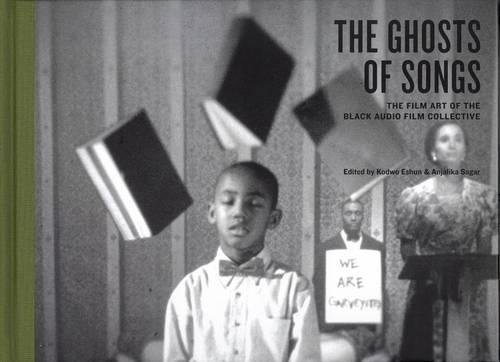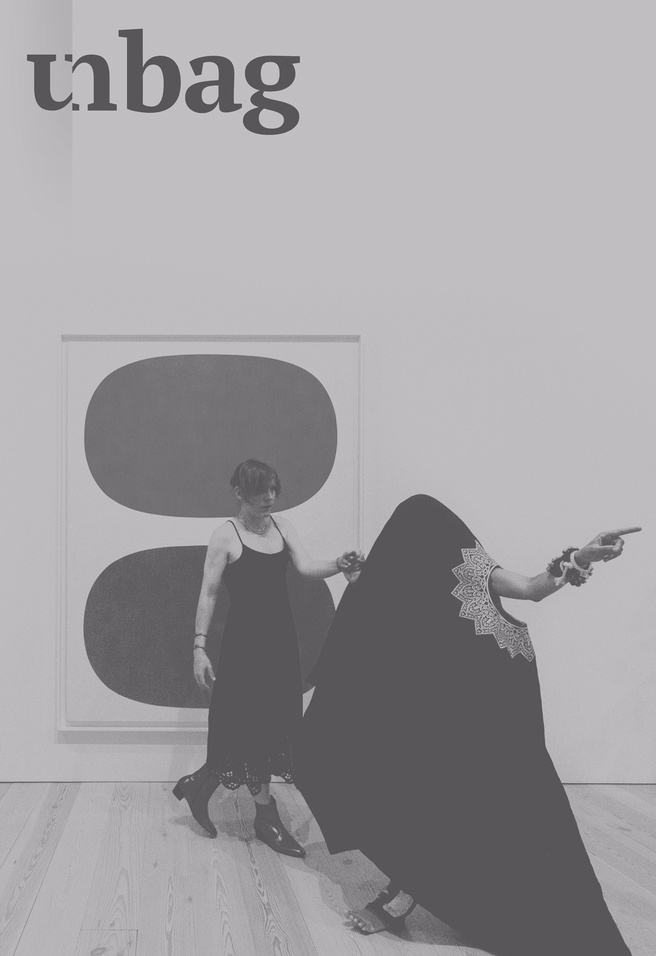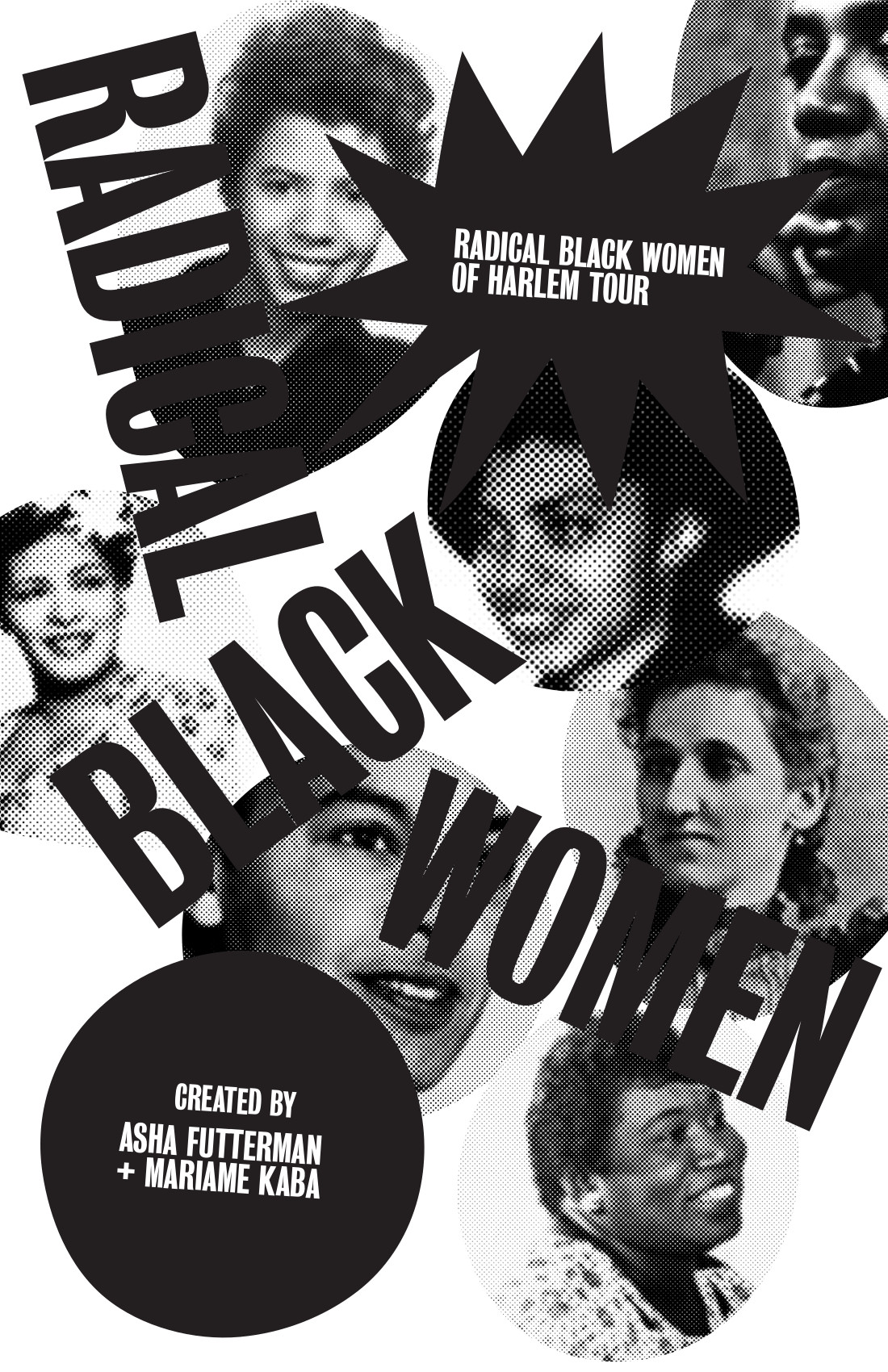Kodwo Eshun, Anjalika Sagar (eds.): The Ghosts of Songs: The Film Art of the Black Audio Film Collective, 1982-1998 (2007)
Filed under book | Tags: · art, black people, film, video, video art

“The Ghosts of Songs is the first book-length exploration of the work of the Black Audio Film Collective. The collective, founded in 1982 and dissolved in 1998, comprised John Akomfrah, Lina Gopaul, Reece Auguiste, Avril Johnson, Trevor Mathison, Edward George and David Lawson, and for sixteen years their films addressed the social, political and racial crises of Thatcher’s Britain and beyond. However, it would be limiting their achievement to see them either as merely challenging the hegemonic forms of mass media, or conversely as polemicist film activists. In films such as Expeditions, Handsworth Songs, Seven Songs for Malcolm X and Twilight City, the collective explored and developed a black film aesthetic. The essays in this volume, contributed by Jean Fisher, Kodwo Eshun, Kobena Mercer and Okwui Enwezor, argue that they inaugurated themselves as an artist-group, laying claim to the right to reconfigure the space of cinema around the Afrodiasporic subject, reconceptualizing lighting, film stock, developing and printing, and inventing the forms that black cinema might take.”
Publisher Liverpool University Press, and FACT, Liverpool, 2007
Changing Media, Changing Europe series
ISBN 1846310148, 9781846310140
239 pages
Exh. review: Josephine Berry Slater (Mute, 2007).
Review: Alexandra M. Kokoli (The Art Book, 2008).
PDF (62 MB)
Comment (0)Unbag, 1-4 (2017-2019)
Filed under magazine | Tags: · art, black people, community art, contemporary art, politics, technology


“unbag is a semi-annual magazine that promotes critical engagement with contemporary art and politics. Commissioning artists, writers, and thinkers who work outside of mainstream discourses, unbag functions as a space to explore ideas through discussion and exchange.”
Edited by American Artist (1), Aaron Cooper (1-3), Andy Wentz (1), Charlie Markbreiter (2), Natalia Tuero Germán (2-3), and Mylo Mendez (3)
Publisher unbag, New York, 2017-2019
ISSN 2572-2786
c.98 pages per issue
Issue 1: Metis (May 2017, HTML)
Issue 2: End (Jan 2018, HTML)
Issue 3: Reverie (Sep 2018, HTML)
Issue 4: In Tension (Sep 2019, HTML, added on 2020-6-8)
Radical Black Women of Harlem Tour (2019)
Filed under booklet | Tags: · activism, black people, new york, social movements, women

“Harlem is both an idea and a place. What became known as the ‘Black Mecca’ began as a farming village inhabited first by the Lenape and then by the Dutch. The first Black people in Harlem, both freed and enslaved, worked on farms in the area known as Niew Haarlem. New Haarlem was formally established as a settlement by Peter Stuyvesant in 1658 and was named after the Dutch city of Haarlem. For generations, the sole connection between Niew Haarlem and Niew Amsterdam was a diagonal road built on an old Native path: a street we now call Broadway…
Learn more about this history and the extraordinary contributions of radical Black women who built community, fought for freedom, and imagined other futures, including Williana Jones Burroughs, Regina Anderson Andrews, Ella Baker, Claudia Jones, Lorraine Hansberry, Salaria Kee, Madame C.J. Walker, A’Lelia Walker, Victoria Earle Matthews, Zora Neale Hurston, Louise Thompson Patterson, Dorothy Height, Pauli Murray, Amy Ashwood Garvey, Billie Holiday, Audre Lorde, Madame Stephanie St. Clair, Marvel Cooke, Eslanda Goode Robeson, Una Mulzac, Grace Campbell, and Willie Mae Mallory.
The Radical Black Women of Harlem Walking Tour offers an important contribution to the effort to uplift Black women’s intellectual, social and political work. We encourage community members, students, and educators to use this guidebook to organize tours in New York City, or as inspiration to design guidebooks in other neighborhoods and cities.”
Research and Writing by Asha Futterman and Mariame Kaba
Published in New York, May 2019
20 pages
HT jul

